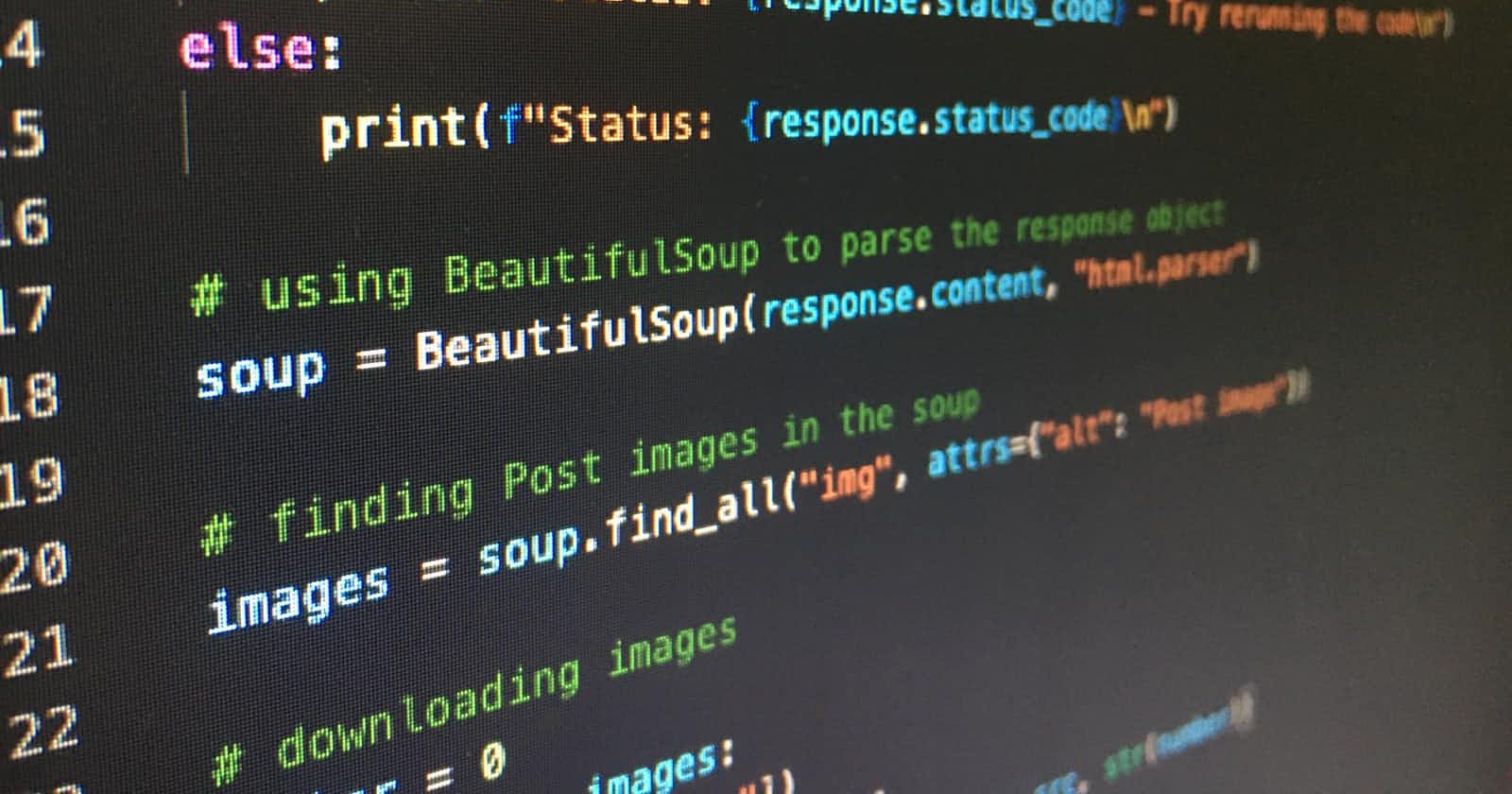
Photo by Artturi Jalli on Unsplash
2nd session: Fundamentals of coding with Python continued (Syntax and lists)
Software development and System Architecture Bootcamp
Today was very comprehensive, we covered overall Python syntax which I will outline below in a very concise way. I also learnt about Lists as a ordered Data structure, with associated built-in methods. Next week we move on to Functions, if statement, for and while loops.... exciting stuff!
Python Syntax (Important bits)
- Indentation
- Variables (case-sensitivity) - camelCase, snake_case and PascalCase
- Python comments
- Casting
- Global and local scoping
Comments
# This is a single line comment
'''
This is the first comment
This is the second
third
'''
Casting
- Changing the data type of a variable (from int to str)
var_name = int(var_name)
type(var_name)
// output int
Global Scope vs Local Scope
- Scope has to do with where you can access your variables
The explanation is that
- Local scope includes all variables declared inside a function. A local variable is only accessible where it’s declared.
- Global scope includes variables declared outside of the function. This variable can be accessed anywhere within the script.
Python Operators summarised
- Arithmetic operators (+, -, , /, %, *, //)
- Comparison operators (==, =!, >, <, >=, <=)
- Logical operators (AND [both sides true], OR [one side true], NOT [no side true])
- Membership operators to check whether a value or variable exists in a sequence (string, list, tuples, sets, dictionary) or not(in, not in)
Python Data Types continued
Lists (and their methods)
- Lists are used to store multiple items in a single variable [ ].
# This is an example of a list
names = ['David', 'Blessing', 'Sarah', 'Dayo']
print(names)
# Ouputs ['David', 'Blessing', 'Sarah', 'Dayo']
- copy() Returns a copy of the list (creates a new list)
names.copy()
# Ouputs ['David', 'Blessing', 'Sarah', 'Dayo']
- count() Returns the number of elements with the specified value
names.count('Blessing')
# Outputs 1
- index() Returns the index of the first element with the specified value
names.index('David')
# Outputs 0
- extend() Add the elements of a list (or any iterable), to the end of the current list
# You can use multiple values to extend the list
new_elements = ['Bayo', 'James', 'Solomon']
names.extend(new_elements)
print(names)
# Outputs ['David', 'Blessing', 'Sarah', 'Dayo', 'Bayo', 'James', 'Solomon']
- append() Adds an element at the end of the list (modifies the original list)
# You can only insert one value at a time
names.append('Toye')
print(names)
# Outputs ['David', 'Blessing', 'Sarah', 'Dayo', 'Bayo', 'James', 'Solomon', 'Toye']
- insert() Adds an element at the specified position
names.insert(4, 'Joe')
# Ouputs ['David',
'Blessing',
'Sarah',
'Dayo',
'Joe',
'Bayo',
'James',
'Solomon',
'Toye']
- pop() Removes the element at the specified position
names.pop(2)
# Outputs 'Sarah'
- remove() Removes the first item with the specified value
names.remove('Blessing')
# Outputs ['David', 'Dayo', 'Joe', 'Bayo', 'James', 'Solomon', 'Toye']
- clear() Removes all the elements from the list
names.clear()
# Outputs []
- reverse() Reverses the order of the list
names = ['David', 'Blessing', 'Sarah', 'Dayo']
names.reverse()
# Outputs ['Dayo', 'Sarah', 'Blessing', 'David']
- sort() Sorts the list
names.sort()
# Outputs ['Blessing', 'David', 'Dayo', 'Sarah']

